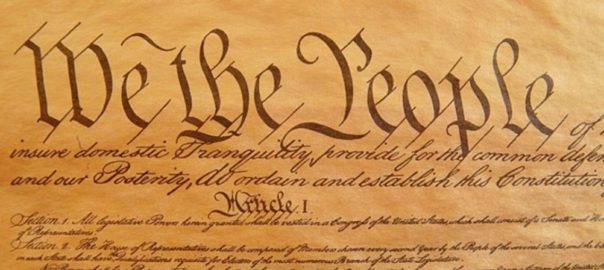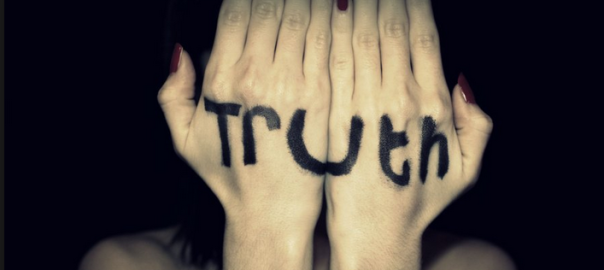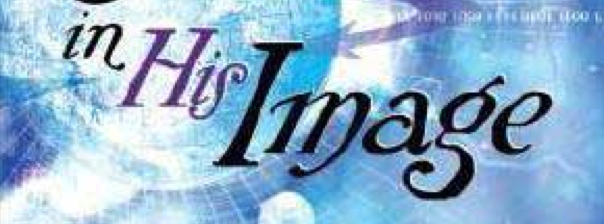Dr. Charlie Self
Professor of Church History
The Assemblies of God Theological Seminary
Sr. Advisor, The Acton Institute
Board Member, Missio Alliance
Dorothy Sayers, playwright, novelist and Christian scholar, wrote an important feminist work in the 1930s entitled, Are Women Human? In her essay, she presents the biblical case for gender equality in a humorous and insightful way, grounding mutuality in theological anthropology. From the Genesis narratives to the new earth of Revelation, she affirms this thesis:
We are all human beings, made in the image of God with a job to do. And we do our jobs as a man or a woman.
This theological vision – of men and women in mutual love and respect carrying out their vocations for the glory of God and the good of others – undergirds the best of ecclesial, economic, political and social liberty. Notice the order of reflection:
Creator > human identity > the call to worship/work > gender identity.
Alas, the effacing (not erasing) of the imago dei has led humankind down all manner of oppressive pathways, from dehumanizing and disintegrating practices of pagan and secular ideologies to the degrading subjugation of women and minorities in the name of religious tradition.
Amnesia of the Creator’s design has also yielded serious psychosocial confusion. Many view gender as a personal preference, a social construct or malleable identity. In the USA alone, there are ten major family systems, with nine of them alternatives to biological parents and children in the same home. This is not the essay to offer easy answers to these challenges; however, they affirm our need for anthropological clarity and the redemptive grace of Christ.
For followers of Jesus, a full vision of God’s reign includes living the future now in the power of the Holy Spirit, with the church as the herald and witness of the fullness to come. This includes redeeming the wholeness of being human, integrating all facets of individual and social being, including relational shalom with all women and men. Women and men who love Jesus are icons of the coming kingdom. Singleness is not incompleteness, but a signpost of a future where all God’s people are married to Christ and sisters and brothers of one another. Marriage is a special illumination of Christ’s delight in his church, not a superior status.
When we survey other anthropologies, we discover vast “differences that make a difference” (Os Guinness). Our global conflicts are theological and anthropological before they are economic and political. How we understand God and each other is the foundation for liberty and love that empowers the flourishing of all.
A Global Competition
There are three “missionary” anthropologies competing for global influence (and for some, domination). As I outline these, it is important to note that large numbers of people situated within these broad categories are neither self-reflective nor caricatures of the extremes implied by the ideologies. Many women and men, especially those that have relocated to other lands or experienced education and travel, represent synergistic or syncretistic worldviews. It is helpful, however, to uncover the implications of these anthropologies and their concomitant epistemologies and moralities.
(There is a fourth anthropology not articulated in this essay. Eastern pantheistic monism, embracing Buddhist and Hindu traditions, deserves attention for mission and neighborly love, but it is not a proselytizing force in the world. Over a billion persons share this complex and paradoxical perspective that affirms the illusory nature of the cosmos and a call for humility and self-denial that can break the karmic cycle.)
Anthropology #1: Naturalism: pagan and secular visions. This is a catchall category that includes the most ancient fertility cults and polytheisms to contemporary atheistic materialism. In this matrix, humankind is the product of biological evolution or other natural forces (with or without deities that need appeasing). Human nature, however evolved, is completely material, including our ongoing explorations of conscience and morality, religion and spirituality. There is no mind-brain or body-spirit distinction. Westernized proponents see religion as dangerous. Human progress depends on ridding human consciousness of belief in any god. This “vision of the anointed” (T. Sowell) creates inequity by dividing humankind into their version of “enlightened” and “ignorant.” Bureaucratic, intellectual and social elites are given honor while religious groups are objects of hatred or pity.
Anthropology #2: Islam. Yes, Islam. Not some “aberration” or “hijacking” of a great religion, but the heart of the Qur’an and Hadith (authorized interpretations and teachings) itself. Islam’s highest value is submission – to Allah and Allah’s appointed authorities. A qualitative, structural hierarchy pervades all aspects of all Islamic traditions. At the top are male Muslims, followed by female adherents. Next are the misguided followers of Jewish and Christian tradition. At the bottom are found the atheists and pagans. What is of particular note is the inferior status of women throughout the Qur’an and Hadith and in the sociopolitical structures of all Islamic societies. Expressions of this vary from very “liberal” traditions that open most fields of education and work to women to the most strict ideologies that want to reify the 7th to 15th centuries and keep women cloistered and dependent, banned from education and professional vocations and subject to premature marriages, mutilation, honor killings and other oppressions. Enslavement of non-Muslim victims of conflict is part of this ethos.
Anthropology #3: Biblical Anthropology informed by Christian history and theological reflection. Christianity has influenced any land with freedom of conscience, economic opportunity and political liberty. This said, the Church has a long history of is own unbiblical structures, including racism, sexism and moments of syncretistic colonialism. Hubris is not allowed here. What is sanguine is the gradual progress toward full equality rooted in sound theological anthropology. This gradual advance brings the end of slavery, abusive child labor, structural sexism and the foundations for growing racial reconciliation. Christian anthropology declares that in Christ, all are equal: married or single, male of female, rich or poor, Jew or Gentile (the latter couplet covers all ethnic and religious backgrounds).
The Missio Alliance (and this author) assert a robust evangelical egalitarian vision, grounded in the biblical text and realized by the work of the Holy Spirit, who continually liberates our souls from sub-biblical thinking and praxis. All of God’s vocations are open to all women and men, according to God’s sovereign initiative and each person’s willing response. Even more than roles or vocations, Christian discipleship liberates single and married, clerical and lay from the unbiblical classifications that keep some people from enriching the Body and the world.
Choosing Door #3
The only anthropology that liberates people of all faiths (or none) is Anthropology #3. In its best expression it is non-coercive and honors all people of conscience that are willing to live civilly with their deepest differences while working for the common good. As believers partner with the Triune God in his mission for the world, we long for every person to repent and believe the Good News in Christ. Those still considering Christ can be our partner, creating flourishing communities and nations and combatting all forms of hatred, intolerance and sexism.
The pagan or secular materialist ultimately dehumanizes us as we are reduced to biological functions or the victims of natural forces. Islam (even while its many adherents make good neighbors) will never produce a pluralistic land of equality and opportunity. The apriori commitment to a three-tiered anthropology and the inferiority of women, along with the concomitant doctrine of Dhimmitude and long-term commitment to a restored caliphate, make it a poor choice for human liberation.
As we reimagine mission and kingdom influence for the 21st century, communicating biblical anthropology reveals the stark contrast of Christianity to materialist and oppressive ideologies. Jesus’ words and works included deliverance, forgiveness, healing and reconciliation. A robust biblical anthropology, when believed and practiced in community, delivers from arrogance and self-hatred, forgives and reconciles with former opponents, and heals personal and communal wounds when dignity, love and respect flow unimpeded.
We are human beings made in God’s image with a job to do. We do it as men and women being transformed into the image of Christ and walking in the God-ordained works prepared for us from the foundation of the world. What a vision! What a mission! Christ is the contrast to every alternative competing ideology.





